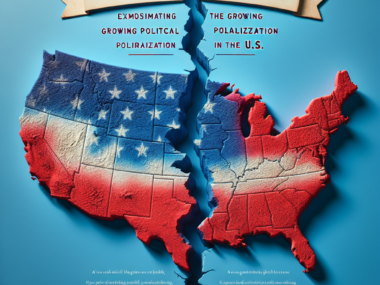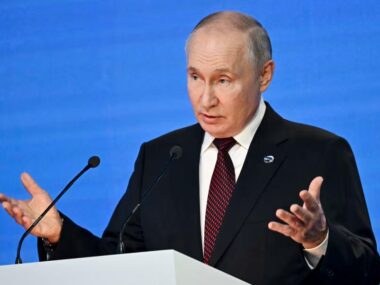Navigating the Storm: How Climate Change Is Reshaping Global Politics
As the planet warms, the stakes of climate change have transcended environmental concerns, morphing into a powerful force that reshapes global politics. The impending changes—rising sea levels, extreme weather events, and shifting agricultural patterns—are not merely disruptions of the natural order. They are catalysts for political upheaval, economic realignment, and social transformation. As nations grapple with these challenges, the intricate relationship between climate change and global politics is unfolding, presenting new opportunities for cooperation, but also heightening tensions that could lead to conflict.
The Geopolitical Landscape
The effects of climate change are unevenly distributed across the globe, exacerbating existing inequalities and creating new arenas of competition. For instance, countries in the Global South, often least responsible for greenhouse gas emissions, are facing the brunt of climate impacts. Nations like Bangladesh, which is prone to flooding and cyclones, struggle to adapt as their populations swell and resources dwindle. Meanwhile, industrialized nations, which have historically contributed the most to carbon emissions, often have the means to implement mitigation strategies, creating a rift in climate responsibility and action.
As the effects of climate change intensify, regions such as the Arctic are opening up due to melting ice—and with them, new passages for shipping, as well as untapped natural resources. This geographical shift has created a new battleground for global powers, notably the United States, Russia, and China, each vying for influence in a region that could redefine energy dynamics and shipping routes.
Migration and Security
One of the most profound consequences of climate change is forced migration. Communities fleeing drought, famine, or catastrophic weather events exacerbate existing tensions in host countries, challenging social cohesion and national security. For example, in the Horn of Africa, prolonged drought has led to severe food insecurity, prompting mass migrations and creating potential flashpoints for conflict as populations compete for scarce resources.
Similarly, climate-induced migration is now recognized as a significant factor in geopolitics, transitioning from being merely humanitarian concerns to security issues that governments must address. Countries may tighten borders to protect national interests, leading to humanitarian crises and international disputes over asylum and refugee policies.
Economic Implications: A New World Order?
Economically, climate change prompts governments to reassess their positions within the global marketplace. Nations rich in fossil fuels are beginning to feel the pressure to transition to greener technologies as global demand shifts towards renewable energy sources. This transformation poses risks for economies heavily reliant on oil exports but offers unprecedented opportunities for innovation and new markets.
The European Union has led the way by introducing initiatives like the Green Deal, aiming to achieve carbon neutrality by 2050. For countries that adapt early, a potential leadership role in the emerging green economy awaits. Furthermore, the alignment of diplomatic ties with climate goals can enhance a nation’s soft power, attracting investment and fostering international partnerships focused on sustainability.
Cooperation Amidst Conflict
Despite the challenges that climate change presents, it also serves as a catalyst for international cooperation. The Paris Agreement, adopted in 2015, exemplifies how nations can unite for a common cause, albeit with varying degrees of commitment and success. Collaborative initiatives to combat climate change, such as the Green Climate Fund, aim to facilitate financial assistance to developing countries, promoting resilience and adaptive capacity.
Moreover, climate diplomacy has emerged as a crucial dimension of international relations, fostering dialogues that transcend traditional geopolitical rivalries. Successful partnerships centered around climate resilience, disaster response, and sustainable development provide a platform for countries to engage on shared interests beyond their immediate political disputes.
Conclusion: The Path Forward
As climate change continues to reshape the global political landscape, the balance between cooperation and conflict will be tested. Policymakers and international leaders must acknowledge the intricate connection between environmental sustainability and global stability. Addressing climate change is no longer merely an environmental imperative but a foundation for a new geopolitical order that emphasizes collaboration, equity, and innovation.
Navigating the storm unleashed by climate change will require courage, foresight, and a willingness to work together. The choices made today will determine the future of nations and the planet, laying a path toward a sustainable and equitable world—or one marred by conflict and despair. In this critical juncture of history, addressing climate change through a geopolitical lens not only acknowledges a reality but also opens doors to unprecedented collaboration among nations. The choice is ours, and the stakes could not be higher.











